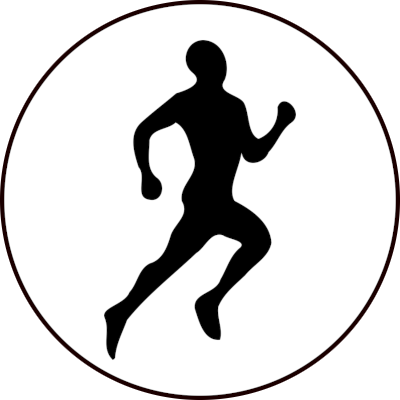Hey everyone, I did my first fartlek yesterday as one of the Nike Guided Runs. The thing is that the coach was saying to do my efforts at 5k pace, and the recovery at recovery pace. I’ve never done a ‘fast’ race-like 5k since I’ve just started running so my ‘5k’ pace felt quite low and the transition to recovery pace wasn’t a big transition at all. For reference, I was running recovery at roughy 6:45 / km and the efforts at 6:15. Should I run my efforts faster and my recovery slower?
5k pace is pretty fast, as in you can’t comfortably talk to someone next to you. Recovery pace should feel very easy and where you could easily have a conversation with someone. So it depends, but it sounds like the difference could be bigger.
Should I run my efforts faster and my recovery slower?
Yes and yes.
I sympathize since it’s really hard to know without a reference, but 5k pace is supposed to be pretty darn quick. It’s not a 5k that you’re doing just to finish, it’s a 5k that you’re doing as fast as you can.
Recovery should be between 50% and 75% of your 5k pace, so if the fastest you can run a 5k is 6:15/km, then your recovery should be around 8:20/km or slower. You might feel like you’re plodding, but you’re supposed to plod after working hard. It’s a distinct difference.
5k pace will feel like “I really want to stop now, but I can keep going if I push myself” then recovery will feel like something of a relief. Recovery pace may not be much faster than walking (try not to walk, but if you have to walk after a hard burst don’t feel bad about it). But most important for now is to get a feel for running at different speeds and intensities. Don’t kill yourself, but don’t be afraid to run pretty hard for a little bit.
Fartleks are usually prescribed without strict timings, rather you need to run them by feeling. To properly choose the right pace you necessarily need some experience. Do a fast pace to the next tree or just raise your pace a little and run to the bench you know is around the next bend in the trail. Mix it up. Have fun, enjoy running, enjoy the speed. You should never be too out of breath to continue running at low effort. If you feel like you started too strong, slow down. If you feel like you left too much in the tank, do the next one faster. You will get to know body better with time, if you stay consistent and healthy.
This is the fartlek that I was taught. Especially when beginning, this sort of fartlek is easier mentally than timed intervals. Do this first and inch in to structured intervals.
Are you using the guided run option on NRC? If not, I recommend it. I just finished the Next Long Run (the one immediately after the Fartlek Run) this morning. I’d say as long as your 10k pace is more effort than recovery and 5k is more effort than the 10k, you are doing fine. Just getting out and doing the run is a success!
Edit: I just noticed your post was a month old! I only found this magazine today. Hopefully your running is going well!
If you would like to comfortably run for example 6.15 for say one or two minutes, then you need to train yourself such that 6.15 is not close to your top speed. To do that, you need to repeatedly run significantly faster than that. For example try 8 times 30 or 60 seconds at 6.00 (or faster if you can) with a minute of rest between. Make sure you are warmed up, and perhaps take it a bit easier on the first two reps.


